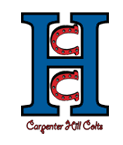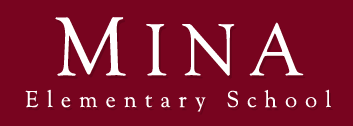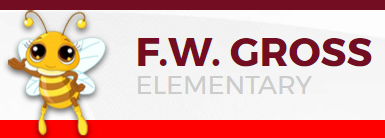Formative Loop on campus: Carpenter Hill Elementary

The mission of Carpenter Hill Elementary School, a dynamic community of students, families, neighbors, and staff, is to empower students with the tools to succeed through nurturing relationships and innovative educational experiences. What a great mission! With a student population of nearly 650, this school has deep roots in its community of Hays, Texas.
Carpenter Hill has been using Formative Loop in 1st – 5th grades. Their principal, Debbie Brown has seen sustained growth in her students. Debbie writes, “Each of our tested grade levels (3rd through 5th) grew in Mastery from last year to this year.”
We loved reading her blog post about the students' progress through daily math practice. You can read it in her own words here.
Their whole campus has been engaged in the daily math practice and focusing on fixing gaps in their student knowledge. Principal Brown shared some impressive stats with us:
- 82% percent of 1st graders know their addition facts
- 95% of 2nd graders know their addition facts and are working on subtraction
- 3rd grade increased the number of students who "Mastered" (the highest status on the state STARR test) by 42%
- 54% of their 4th and 5th grade students know ALL of their facts (addition, subtraction, multiplication, and division).
- Their 5th grade Texas STARR scores went up 7.2% from when those students were in 4th grade
Principal Brown had this to say about the program,
“Formative loop has allowed a systematic approach in providing individualized plans for student acquisition of developmentally appropriate math skills. CHES students have demonstrated growth in basic math facts and automaticity. We have also seen a significant increase in the transfer of knowledge as young as first grade when applying new math skills to unfamiliar situations.”
We visited their campus and there is clearly a lot of passion in the staff at Carpenter Hill. It shows in the progress their student population is making. Here at Formative Loop, we’re proud to play a part. Great job Carpenter Hill Colts!
Math fluency leading to improved scores

Mina Elementary is a large public school serving the Bastrop community in central Texas. It has over 500 students in attendance, with grades kinder through fourth. The school has a mixed population with about 45% economically disadvantaged students. It’s a school who clearly cares deeply about their students and community. You should see the pictures from the fall festivals, parades, and science fairs on their website!
Mina Elementary began using Formative Loop about 1.5 years ago. Their math scores were doing well, but they had heard about other schools in the area seeing lots of success closing skill gaps through daily practice.
In the last year alone, they saw their third-grade students improve 18% on the Texas STARR test from the previous year when they were in second grade! They also saw the number of students who were highlighted as “Mastered” by the STARR test go up 33%. This is amazing progress in only one year.
Their principal, Reba King says,
“Formative Loop is loved by students, parents, and teachers. Students are motivated. Parents can easily assist with the homework and appreciate that we are putting an emphasis on holding students accountable for foundational math skills. Teachers see the impact on student learning, and value the real-time data to drive intervention.”

Mrs. King has implemented the program campus wide in grades 1-4. Each day, the entire school does their math practice at 7:35 am. Once the paper-practice is complete, support staff helps enter the progress in the computer for the 3rd and 4th graders. The other grade levels just have the teachers manage it. They print out the next-day’s practice using the Formative Loop website.
4th Grade Teacher, Jennifer Leisure writes,
“Formative Loop is the best program I have seen to practice numeracy skills on a daily basis. As a teacher, I can appreciate the easy implementation of Formative Loop. The program is individualized and students go at their own pace. It definitely has built math confidence in my students.”
Many of the grade levels include a daily homework practice from the program. These are also individualized for each student. Jennifer went on to say,
“I have found Formative Loop to be a powerful tool when meeting with parents in conferences. It is easy for a parent to monitor the 5-minute nightly homework requirement and to track their child's progress through the skills.”
It’s not just the 3rd graders who saw a large improvement. Their 1st grade population meeting their district end of year academic targets for math went up 11% and their 2nd grade population increased a total of 27% from 2015-16 to 2016-17.
We’re proud to partner with Mina Elementary. We know student improvement doesn’t come simply from tools like Formative Loop, but also requires the dedication and skill of great teachers. Congratulations to the students and staff of Mina Elementary on your success!
Formative Loop on campus: F W Gross Elementary
 F W Gross is a medium-sized elementary school in Victoria, near the Texas gulf coast. They have around 350 K-5 students, with over 90% economically disadvantaged children. The school’s mascot is the bumblebee, and they are led by a very passionate principal, Mary Noble.
F W Gross is a medium-sized elementary school in Victoria, near the Texas gulf coast. They have around 350 K-5 students, with over 90% economically disadvantaged children. The school’s mascot is the bumblebee, and they are led by a very passionate principal, Mary Noble.
Gross Elementary began using Formative Loop in January of 2016 in grades 1-5. They were concerned about their 5th graders who were struggling with basic addition, subtraction, and multiplication skills. They wanted to help those stragglers, and begin to build up confidence in the early grade levels to solve the problem much sooner in the students’ tenure.
At the end of the 2016-17 school year, Principal Noble wrote,
“We had another AMAZING year with Formative Loop! Our teachers all agree that it is the one program we cannot live without! It has increased our benchmark scores and we have noticed our students are working problems much more efficiently.”
Each morning from 8-8:05, all of the students do their daily individualized math practice in their classroom. Math Interventionists assist the classroom teachers by going and collecting their papers at 8:06. They share space in the front office where they grade, taking about 25 minutes for the whole school. By 8:30, the interventionists are ready to return to their classroom assignments to work with students. The next day papers are printed and put into folders along with homework sheets that are utilized during that day's intervention time. Like clockwork, the teachers have data on which skills a student is stuck on and the next day’s practice ready by 8:45 am.
Mrs. Noble went on to write,
“Formative Loop has made such a difference on our campus! This program allows teachers and staff to target specific areas of need for each child. Teachers are able to utilize immediate, targeted data to pinpoint student struggles in math. Instruction is differentiated with each child working at their own pace.”
Her interventionists are scheduled to pull students throughout the school day during small groups in class. They use the Formative Loop daily report to give the teachers a quick look at the targeted needs of each student who is struggling. It helps pinpoint how they spend their time with those students.
In the 2016-17 school year, they have already seen significant progress. Their 3rd grade Texas STARR scores were up 8.6% year-to year. Their 4th-grade students increased 15.5% from when those students were in 3rd grade the previous year. Even the % of students who were designated with "Mastered" (the highest status on STARR) were up 20-30% or more in all grade levels!
We love hearing stories of student progress like this! Congratulations to the teachers and students of F W Gross Elementary. It’s your dedication and focus on improving that is making a difference.